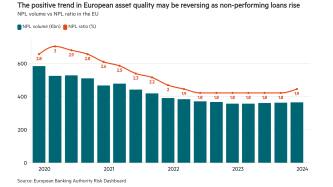Greece’s future is in the hands of the European Central Bank (ECB) and its president Mario Draghi – at least, that appears to be the prevailing mood in the country. After years of economic hardship and three bailouts, the country is yet again seeking to turn a corner. While the economy was stagnating in 2016, expectations are high for the country to record its first significant gross domestic product (GDP) growth in 10 years in 2017 – but still, forecasts are widely contingent upon external factors and agreements with creditors.
The European Commission (EC) is forecasting a 2.7% real GDP expansion in the Greek economy in 2017, based on expectations of an increase in private consumption and investment fuelling positive net exports, while the recapitalisation of the financial sector should account for a “gradual relaxation of capital controls over time”, according to the EC’s European Economic Forecast of November 2016 (see article on Greek banking sector, page 38).











